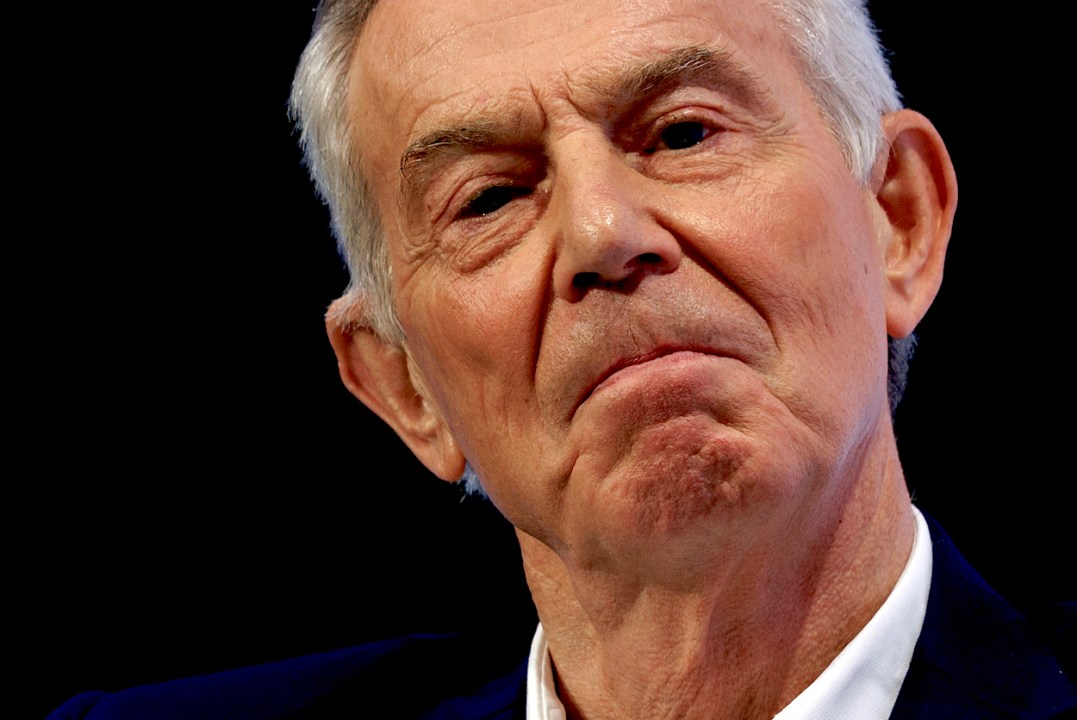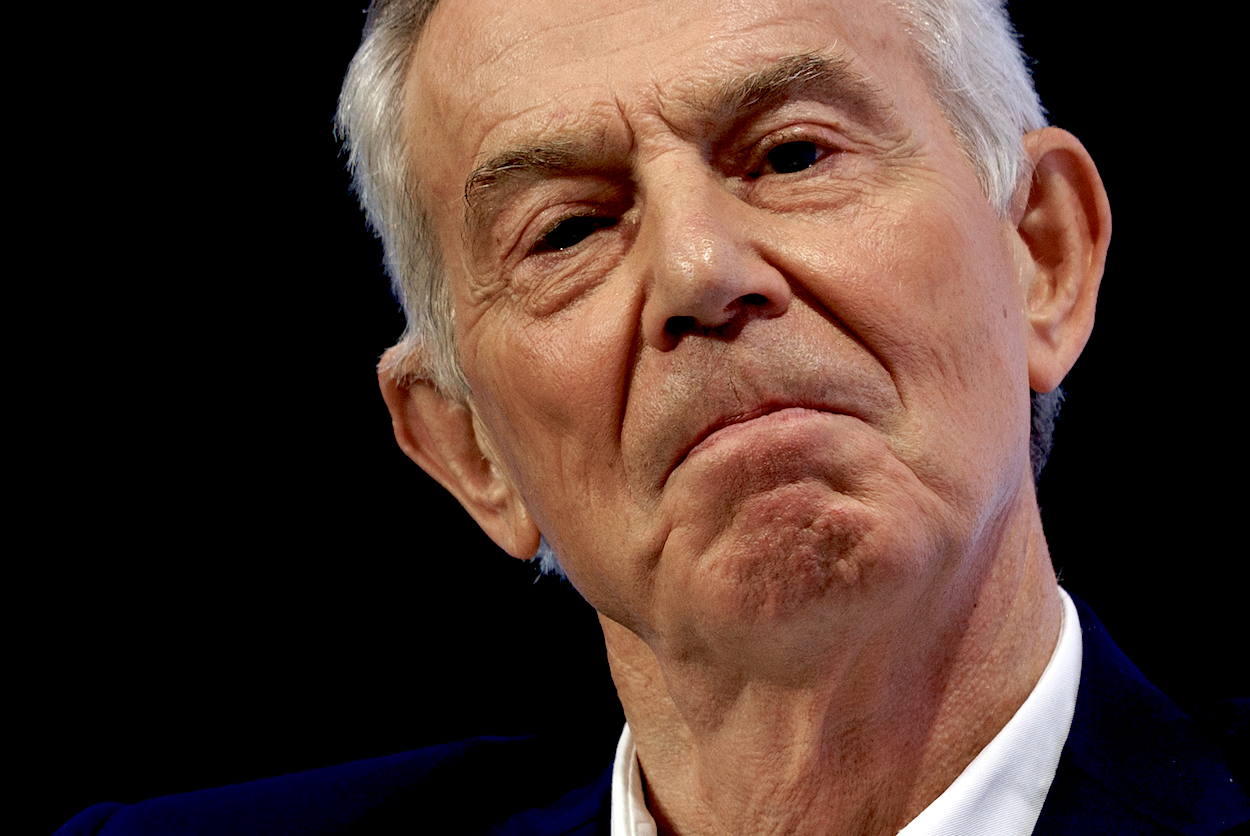During an earlier Gaza war, I spoke to families who had fled the fighting but whose place of refuge – a UN school – had been hit by white phosphorus. We stood around and looked at what remained of one of the shells… the bits were still smoking and would burst into flames if you nudged them with your foot. A middle-aged man in a rumpled suit was furious, and not just with the Israelis. ‘You’re to blame for this,’ he said, wagging his finger, his voice getting louder. He meant the British: ‘You and your Balfour Declaration.’
The declaration was made in a letter written in 1917 by Arthur Balfour, then foreign secretary, who promised British support for the establishment of a ‘national home’ for the Jewish people in Palestine. Conversations with Palestinians today have a way of ending up with the Balfour Declaration; from time to time the Palestinian Authority threatens to sue Britain over it. So, Tony Blair should not expect unreserved joy from grateful Palestinians if he takes up his mooted appointment as viceroy of Gaza. Any Brit would come with baggage.
Blair, though, comes with a creaking truckload. To many Arabs, he is a war criminal, an eager partner in the invasion of Iraq, the blood of hundreds of thousands of Iraqis on his hands. And the Palestinians are some of the few peoples in the Middle East with fond memories of Saddam. The butcher of Baghdad always supported their cause, even if that was for self-interested reasons. Palestinian officials also think Sir Tony became increasingly biased towards Israel in his years as special envoy for the Quartet (representing the UN, US, EU and Russia).
Despite all that, Blair might just make a success of running Gaza. That is as much as anyone could, given the ill will from extremists on both sides, the vague and so far unfulfilled promises of help from the Gulf monarchies, and the sheer scale of the task of rebuilding what’s left of Gaza. Blair knows all the players personally; he’s been dealing with them for decades – as UK prime minister, Quartet envoy, and most recently representing himself and his Tony Blair Institute (becoming fabulously rich along the way). If Palestinian officials don’t particularly like him, they respect him. He would be a credible figure as chairman of the Gaza International Transitional Authority (Gita).
First, though, there has to be agreement to run Gaza as an international protectorate. President Trump is on board, even if it’s unclear whether he will get the Trump International resorts and giant golden statue he once hoped would be part of a new ‘Gaza Riviera’. The Gulf monarchies have made encouraging noises. The key will be whether Trump – and Blair – will be able to get them to pony up the hundreds of billions needed to rebuild and to supply the peacekeeping forces to make sure no more rockets are fired at Israel. The Palestinian Authority leader, Mahmoud Abbas, says he’s ready to take over, though that’s doubtful. For the time being, his concern is whether the US can stop the Israeli prime minister, Benjamin Netanyahu, from annexing more of the West Bank.
It might be a good thing that the headquarters of the protectorate is planned to be in Egypt
Blair hasn’t spoken publicly about the plan, but if press reports are accurate, it’s his scheme as much as the Trump administration’s. His institute is said to have begun working on ‘the day after’ as soon as Israel sent troops into Gaza following the 7 October massacre. What we know of the plan comes from a leak to the Times of Israel. The newspaper says Blair would not expel the Palestinians, as President Trump has mused aloud would have to happen for reconstruction to take place. ‘Gaza is for the Gazans,’ a source told the paper. There is said to be a ‘Property Rights Preservation Unit’ to ensure any Gazans who left the Strip would be able to return and reclaim their property. (Though whether Gazans believe the promises is another matter.)
Assuming he takes the job, Blair’s biggest problem would (obviously) be Hamas. They know they can no longer run Gaza but do not accept they would have to leave. An anonymous Hamas official told the Independent: ‘No party has the right to dismantle any Palestinian faction.’ A Zogby poll in May suggested that less than 4 per cent of Palestinians in Gaza want Hamas left in charge; 92 per cent blamed them for what had happened to Gaza. But while Hamas may have little support, they still have their guns. It might be a good thing that the headquarters of the new protectorate is planned to be just over the border in Egypt, at least in the early days.
Saudi Arabia, the UAE and other rich Arab states will send troops and write cheques only if the protectorate contains the promise of a Palestinian state. Prime Minister Netanyahu has spent his whole political career trying to stop such a state from coming into being. Before anything can happen, there will have to be ceasefire, with the remaining Israeli hostages returned home. Previous ceasefire and hostage release talks have been slow and tortuous, breaking down time and again. Netanyahu and Hamas could now find themselves wanting the same thing – to stop the protectorate. If so, President Trump was premature in saying peace is at hand. And Sir Tony should not measure the curtains for his new office just yet.








Comments